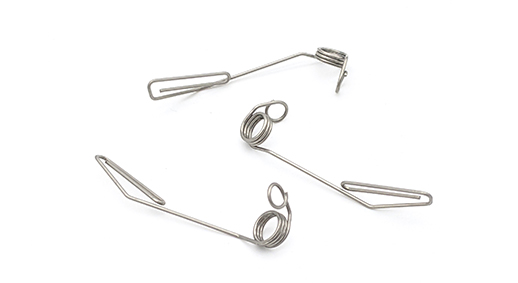Get unique, complex parts easily. No matter your requirements, Chaoyi Spring creates hard-to-produce coil springs and wire forms.
Let us help you create the custom wire form you need, from S-hooks and J-hooks to utility hooks and more.
We work closely with customers across a wide range of industries, helping them design and manufacture made-to-order parts.
Why choose Chaoyi Spring? We prioritize customer-focused collaboration, modern equipment and the latest technology to make your parts per print.
Find the information and guidance you need, from measuring a spring to learning about materials, placing an order and much more.
Spring tension, the force that governs the extension and compression of a spring, is a ubiquitous phenomenon in our world. From the simple act of bouncing a ball to the


Spring tension, the force that governs the extension and compression of a spring, is a ubiquitous phenomenon in our world. From the simple act of bouncing a ball to the complex workings of a car suspension, spring tension plays a vital role in shaping our physical environment. In this article, we'll explore the fascinating world of spring tension, delving into its underlying principles, practical applications, and the profound impact it has on our daily lives.

Imagine a spring, a coiled wire that stretches and contracts. When you apply a force to it, the spring either extends or compresses. This force, which is proportional to the change in length of the spring, is what we call spring tension. The greater the force applied, the greater the tension. Think of it like pushing or pulling a rubber band—the more you stretch it, the more resistance you feel.
This concept is captured by Hooke's Law, a fundamental principle in physics. Hooke's Law states that the force exerted by a spring is directly proportional to its displacement from its equilibrium position. This means that the force is directly proportional to how much the spring is stretched or compressed. The spring constant, denoted by 'k,' is a measure of the stiffness of the spring—higher k means a stiffer spring.
Spring tension, with its simple yet powerful nature, finds applications in a myriad of fields. Let's dive into some prominent examples:
1. Mechanical Systems: From the suspension systems of vehicles that absorb shocks and vibrations, to the springs in clocks that regulate time, to the mechanisms that power wind-up toys—spring tension plays a crucial role in mechanical systems. Imagine a car going over a bump. The spring in the suspension system compresses, absorbing the shock and preventing it from being transmitted to the passengers. This ensures a smooth and comfortable ride.
2. Aerospace: Spring tension is instrumental in spacecraft and satellites. They are used in deployable solar panels, antennas, and other mechanisms that need to be folded for launch and then deployed in space. These springs allow for compact storage and efficient deployment, crucial for the success of space missions.
3. Medical Devices: Spring tension finds its way into medical devices as well. Think about surgical instruments that need to be precise and controllable. Spring tension helps in maintaining constant pressure and force, making delicate procedures more manageable. Spring-loaded mechanisms are also used in medical implants, like stents, for controlled deployment within the body.
4. Everyday Objects: Spring tension is also a key element in everyday objects. Pens use spring tension to retract the writing mechanism, and retractable pens use it to retract the tip. Door closers use spring tension to ensure doors close smoothly, while spring-loaded clamps hold objects securely in place. These are just a few examples of how spring tension makes our daily lives easier and more efficient.
Beyond its practical applications, spring tension has profound implications in understanding the behavior of various systems. It helps us analyze how energy is stored and released in elastic materials. This knowledge is crucial in fields like structural engineering, where it's essential to design buildings and bridges that can withstand the forces of nature.
Furthermore, spring tension provides a fundamental example of a restoring force. This means that it always acts in a direction that seeks to return the spring to its original equilibrium position. This principle finds applications in various systems, from the oscillations of a pendulum to the vibrations of a guitar string.
Spring tension, a seemingly simple concept, underpins a vast array of phenomena in our world. From the intricate mechanisms of machines to the delicate workings of medical devices, spring tension plays a critical role in our daily lives. By understanding its principles and applications, we gain a deeper appreciation for the intricate forces that shape our physical environment.
So, next time you see a spring, remember that it's not just a coil of wire; it's a symbol of the powerful force of spring tension, a force that shapes our world in countless ways, making it a more efficient, reliable, and comfortable place to live.
Browse some of the custom wire forms and springs that we manufacture. Don’t see what you need? We specialize in made-to-order products that meet your application requirements.
Visit Our GalleryNeed a custom wire form or coil spring? We make it work. Fill out the contact form and a representative will respond within 1 business day. If you have a PDF or CAD file, you can submit to request a quote.